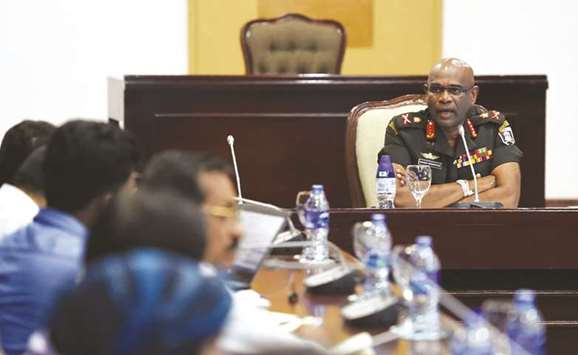The Sri Lankan army has formed a special unit to defend itself against allegations of grave human rights abuses at the end of the island’s decades-long ethnic war.
Army chief Lieutenant General Mahesh Senanayake said the group would collate local and international reports, and establish the truth to clear the military’s name.
International rights groups accuse the military of killing 40,000 Tamil civilians in the final months of the war which ended in May 2009. The government of the time said not one civilian was killed.
“Different people have been saying different things, but our voice has not been heard,” Senanayake told Colombo-based foreign correspondents.
“That is why I set up the special directorate of overseas operations to prepare our
position.”
Senanayake distanced the military from the previous claims that no civilians died, and acknowledged there may have been individual excesses.
“If someone says they know of specific instances (of rights violations) we are ready to investigate,” Senanayake said. “I am not going to look the other way. I want to clear the name of the army.”
He said there were conflicting claims of casualties from the 37-year-old Tamil
separatist war.
“Different units of the army involved in the final offensive maintained figures of casualties. I want to collate all that.
“I know the (then) government said no civilian was killed, but it was not our voice. We never said that. This time, we want to come back with our story.”
He said the 236,000-strong army wanted to clear its name and play a bigger role in UN international peacekeeping.
The government has said it lost at least 26,000 soldiers in the war with another 37,000 wounded. About 20,000 of the injured ended up with a permanent disability.
The Tamil Tiger rebels also lost heavily and the entire guerrilla leadership was wiped out in the military onslaught.
The government under then president Mahinda Rajapakse, who ordered the offensive, faced international censure for refusing to acknowledge what the UN called credible allegations.
The administration which came to power in January 2015 said it was willing to investigate and pay reparations to victims, but progress has been extremely slow.

Sri Lankan army chief Mahesh Senanayake addresses the Foreign Correspondents Association (FCA) in Colombo yesterday.
